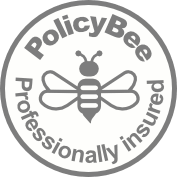Dealing with the quiet times
19 Feb 2013 | 14 Comments | posted by Megan Onions | in The Business of Translation
Up until a few days ago, this month had been pretty quiet. A lot has been written about feast and famine periods in freelancing but, so far, I had been relatively lucky in that the famine periods had only lasted for a few days. At first, I was glad of a bit of time to do some MA work and have some kind of social life (!), but there came a point where the sinking feeling set in. I’m sure you know the one I mean. The somewhat irrational fear that, despite your skills, previous client record and motivation, no-one will ever work with you again. There’s nothing quite like the vulnerability so keenly felt by freelancers!
Given this lack of (paid) work, you’d think that I’d have had more time to write more posts here (sorry!), but I made a big effort to use this quiet time to enhance my online presence, work on my skills, gain more knowledge and market to new clients. And it seems to be working: over the past few days, I’ve been flat out with work for, wait for it…new clients!
Between my ‘feast’ periods, I worked on a lot of things that can get swept away in a tide of work. Now that my diary has filled up again, I’m glad I took the time to work behind the scenes. So what have I been up to?
Required reading
In times of uncertainty or low confidence, it’s a good idea to go back to the experts:
•How to Succeeed as a Freelance Translator – Corinne McKay
•The Entrepreneurial Linguist – Judy and Dagmar Jenner
I have also been exploring some new books recently:
•The Translation Sales Handbook – Luke Spear
•The Little Book of PR for Translators – Nicole Y. Adams
Aside from great CPD, these books have given me a new perspective on how to run my business.
Webinars and online courses
Back in January, I made the most of an offer run by eCPD Webinars and bought three recorded webinars. I took my famine period to build on my knowledge and skills. Even now the offer is over, webinars start from just over £20 – a very reasonable fee for what can be very beneficial advice and knowledge from subject experts.
I have also signed up for two online courses on copywriting and proofreading, which can be completed in my own time. The flexibility offered by these (often free) distance learning courses are ideal for freelance lifestyles.
Online presence
Ever since I started translating, let alone freelancing, I have maintained online profiles. That said, it’s easy to let things slide and let your bios age. I try to revisit my LinkedIn profile every month or so, and I make a note of new skills and courses to add to other profiles when I update them. Recently though, I have been looking for more places for Speech Marks Translation to live on the web. My first port of call was a local group for businesswomen that I belong to, where I added myself to the members directory.
These are the other profiles that I have made in the last few weeks:
•vizualize.me
•Pinterest (speechmarks)
•Linguaquote
Marketing to new clients
I always try to dedicate some of my day to identifying and contacting potential clients, so this took up a lot of my time during the famine period. Sometimes it takes a bit of motivation and courage to contact new companies, but I spent a lot of time researching and compiling a spreadsheet, and I contact a few of these businesses each day, which is very manageable.
Working with agencies
Up until recently, I hadn’t worked with agencies all that much. However, after reading about fellow translators’ experiences of working with select agencies, I started to listen up and do some research. In particular, I wanted to know the mix of agency and direct clients favoured by colleagues. I now know that, for example, Catherine Christaki, co-writer of Adventures in Freelance Translation, only works with agencies, Rose Newell, who writes the brilliant Translator’s Teacup blog, has a 50/50 split of direct and agency clients, and Judy Jenner, blogger at Translation Times, works exclusively with direct clients. Clearly, there’s no perfect solution. What works for one person won’t be right for another.
So what next? I started by reading the following posts on working with agencies:
Konstantinos Stardelis – Dealing with a translation agency
Corinne McKay – Marketing your services to translation agencies
After doing a bit of research, and having a think about what I wanted to get out of agency work, I created a checklist of criteria to identify good prospects. The most important of these were, unsurprisingly, rates and payment terms. I also found some great-looking agencies which specialise in my favoured sectors, and contacted a number of advertising agencies with translation or transcreation departments, as suggested by a colleague who specialises in advertising. The most important thing for me was to add to my current portfolio, not contradict it, as I’m working on narrowing my specialist fields (more news to come – stay tuned).
So, there’s my story of dealing with freelance famine. I’d love to hear your suggestions and experiences – a problem shared and all that…get in touch.
In the meantime, here are some links to great posts on addressing the issue:
Dealing with Freelancing Famine – Adventures in Freelance Translation
Avoiding feast or famine by marketing consistently – Thoughts on Translation
Avoiding the famine: be ready for anything – There’s Something about Translation






 Megan’s proofreading has been very beneficial to me. I appreciate her accurate linguistic knowledge of English, and especially her stylistic recommendations.
Megan’s proofreading has been very beneficial to me. I appreciate her accurate linguistic knowledge of English, and especially her stylistic recommendations.
